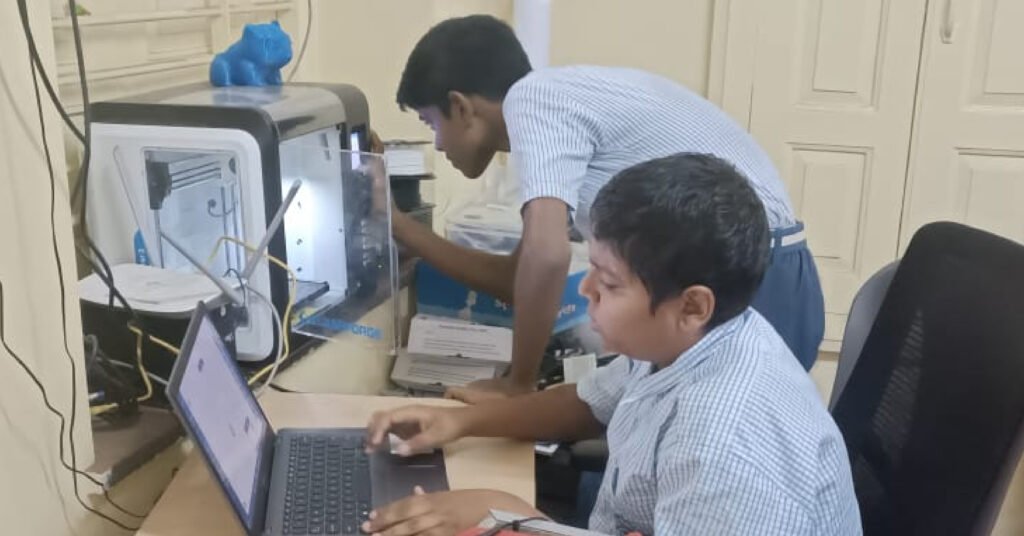India is a creative and diversified nation. A robust STEM environment is essential as the world is growing more and more reliant on technology. STEM education is the cornerstone of creativity, critical thinking, and problem-solving skills.
In India, STEM education is a paradigm change from conventional teaching methods. It represents a complex learning environment that combines maths, science, technology, and engineering to develop a wide range of skills in pupils. This method encourages students to participate in real situations that stimulate creativity and problem-solving, rather than only focusing on academic information.
Including Creative Pedagogy
The promise of STEM education is mostly attributed to its innovative teaching approaches. It’s important to foster an inquisitive attitude in addition to just spreading knowledge. Students are given the freedom to investigate, test, and draw conclusions on their own as concepts are taught through project-based learning, interactive sessions, and experimentation. This method develops analytical and critical thinking skills, which are vital for navigating the complexity of today’s environment.
Including STEM in All Subjects
STEM education crosses disciplinary boundaries and isn’t limited to stand-alone disciplines. It promotes interdisciplinary education and strengthens ties between many disciplines. The integration of technology into biology and the use of mathematical ideas in engineering projects are two examples of how these areas are related. Students’ perspectives are widened and they are more prepared for the dynamic nature of future occupations thanks to this multidisciplinary approach.
Providing Empowerment with Real-World Implementation
The focus placed on real-world application in STEM education sets it apart. It all comes down to giving pupils places where they may apply abstract ideas to actual situations. Whether building models, doing experiments, or writing code, these hands-on activities provide a concrete comprehension of theoretical ideas, improving knowledge retention and application.
Importance of STEM in Modern School:
Future Relevance: STEM education guarantees that people have the abilities and information needed to adjust to changing employment markets and succeed in new professional possibilities.
Critical Thinking: STEM education promotes the growth of essential abilities of thinking, enabling people to successfully examine, assess, and resolve complicated issues.
Technological Adaptation: Because Technology is developing quickly, STEM education equips students with the skills they need to use and navigate new technologies successfully while keeping up with developments.
Innovation Focus: STEM fields foster creativity, creative thinking, and the capacity to provide original concepts and solutions.
Employability and Industry Relevance
The fact that STEM education is in line with business needs is an inherent benefit. Establishments are working with business sectors to close the knowledge gap between higher education and the workforce. Through this partnership, students gain exposure to skills that are relevant to the business and improve their employability. Employers value graduates who possess the technical knowledge and problem-solving skills that they possess.
Overcoming Obstacles to Inclusion
Despite the enormous promise of STEM education in India, issues including gender inequities, uneven access, and resource discrepancies still exist. Proactive steps are required to address these issues. A more inclusive educational environment depends on programmes that prioritise offering high-quality instruction in remote regions, funding scholarships for deserving students, and initiatives that encourage gender inclusion in STEM professions.
STEM’s Place in the Development of Future Readiness Skills
STEM education significantly contributes to the development of critical skills required for success in modern employment. It helps people become more adept at solving problems, thinking critically, and using technology, which equips them with the skills necessary to excel in the job.
Relevance to Industry: The requirements of many other industries are similar to those of STEM. Development of Skills: Innovation requires STEM education. Emphasis: A creative mindset is fostered by STEM education. People get subject-specific knowledge as well as the adaptability to change with the needs of their jobs. STEM graduates may be able to offer businesses fresh perspectives and innovative solutions because of this curriculum’s emphasis on innovation.
Adaptability: In a workplace that is changing rapidly, this is essential. A STEM degree increases a person’s adaptability and versatility, which helps them deal with changing job needs and technological advancements. Their ability to adapt allows them to stay ahead of the competition and thrive in dynamic work environments.
Consequently, people with these skills are prepared for a broad variety of career paths. People who pursue a stem education are more prepared for careers in environmental science, technology, engineering, and healthcare.
Strong problem-solving skills are acquired by students studying STEM fields. Beyond scholarly comprehension, it encourages a proactive approach to solving challenging issues. This capacity for problem-solving is very advantageous in a variety of professional settings,
enabling STEM-educated people to address a wide range of difficulties efficiently.
In summary
In India, STEM education encourages critical thinking, creativity, and problem-solving skills. It’s a creative method that combines science, technology, engineering, and maths to foster creativity and useful abilities. It equips people with practical learning experiences and technology integration to prepare them for a variety of vocations. By overcoming obstacles like gender inequality and uneven access, STEM promotes diversity and equips a workforce suitable for a range of sectors. In the end, it gives them the flexibility and problem-solving skills necessary for their current careers.




